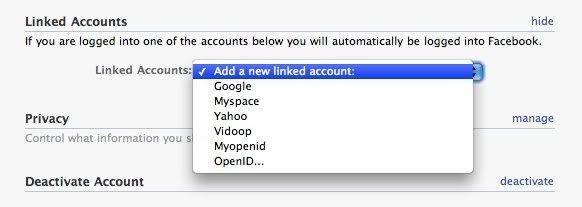It's ironic that it's Facebook that did it. Facebook is probably the most closed of all the major social networks (other than LinkedIn) and is so far ahead of everyone else in market share that traditional logic would argue that they have no interest in this kind of interoperability. This is the kind of step that was expected from networks more open and, frankly, far behind Facebook. Nevertheless, it has happened and it's big news.
New Facebook users will now be able to create Facebook accounts using their Gmail credentials and existing users will be able to associate and thus log in with Gmail or any other OpenID account that supports "automatic login."
That means fewer passwords to remember. Just log in with your favorite OpenID supporting account and don't worry about one just for Facebook. Single sign on is just the simplest benefit though.
Presumably, the friends you bring with you in your OpenID account will be searched for automatically on Facebook. "In tests we've run," the company said today, "we've noticed that first-time users who register on the site with OpenID are more likely to become active Facebook users. They get up and running after registering even faster than before, find their friends easily, and quickly engage on the site."
Contact lists are the second simplest benefit of this kind of data portability, but other payloads are possible and that's when it gets even more exciting. We'll see what Facebook does to move the ball even further up the court.
Expect MySpace, Digg, Twitter and maybe some Yahoo sites to start accepting OpenID from other companies by the end of this summer at the latest. It's only a matter of time now that Facebook has.


